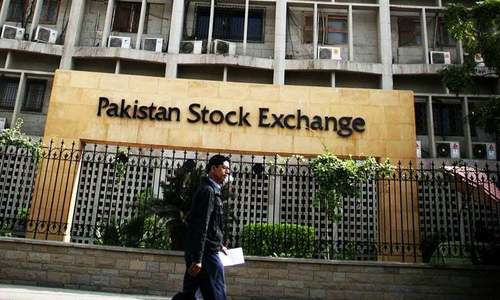
A shaky investment outlook will continue to pose a challenge to economic policymakers as well as the country’s economic prospects during 2017, in spite of signs of improvement in the fundamentals.
Indeed, foreign investors have begun returning to Pakistan as security conditions across the country, particularly in Karachi, improve on the back of the military led operation and the China Pakistan Economic Corridor (CPEC) project gets under way.
With Chinese firms buying major stakes in Karachi Electric (KE) and the Pakistan Stock Exchange (PSX), a Turkish investor acquiring Dawlance and Europeans taking over Engro Foods, the ‘investor confidence’ appears to be surging over the last few months.
“After a lull of 6-7 years, FDI is picking up. Indeed, the CPEC has helped. But I think even without it our perception has improved”
The recent changes in the top military command amidst reports of growing tensions between the civilian authority and the armed forces under its previous chief, Gen Raheel Sharif, too has raised hope of political stability and an end to uncertainty and turbulence from the country.
But local investors largely refuse to follow the lead of foreign investors and still remain hesitant about committing their money to the industry in spite of historically low interest rates and improved energy supplies, especially in Punjab.
“I cannot say anything about the future. But until now even foreign investors are buying existing businesses and not investing in new Greenfield projects,” a Karachi-based banker told Dawn.
A Punjab Board of Investment and Trade (PBIT) official agreed saying most foreign investors — read Chinese — are showing more interest in the possibility of acquiring existing businesses instead of investing in new projects.
Foreign and domestic private investment has consistently been dropping in the country over the last several years due to deteriorating security conditions, energy crunch, political instability and tensions with India, affecting the economy’s ability to create new jobs. Foreign direct investment (FDI), for example, shrank 45pc to $460m from a year ago.
Even the State Bank of Pakistan has expressed its concern over falling private investment in the economy, saying higher private sector investments need to be accelerated.
“While public sector investment is increasing despite resource constraints, investment by the private sector has not increased sufficiently. This has inhibited the country’s potential growth,” the central bank said in its annual State of the Economy report for 2015/2016.
Zeeshan Afzal, a financial analyst at Insight Securities, however, expects significant foreign investment flowing into the manufacturing industry during 2017. “We cannot quantify it right now but we can see foreign direct investment returning to the country during the year.”
He said sectors like auto, cement, steel, food, etc were amongst the top contenders for foreign private investment as security improves and energy shortages reduce.
“The investment climate in the country has significantly improved. Until a couple of years ago no foreign investor was prepared to commit its money to Pakistan. The situation has changed now and we see investors coming back,” Zeeshan argued.
“They are coming to Pakistan to take advantage of our growing middle class. They aren’t investing in the export-oriented industry because our exports are uncompetitive and have a very narrow base.”
Taha Khan Javed, director research at Alfalah Securities, agreed. “After a lull of 6-7 years, FDI is picking up. Indeed, the CPEC has helped. But I think even without it our perception has improved,” he insisted.
He admitted that foreign private investors were not attracted in committing money in export-oriented industries. “They are coming to Pakistan to take advantage of our growing middle class. They aren’t investing in the export-oriented industry because our exports are uncompetitive and have a very narrow base.”
Syed Ali Ehsan, a textile manufacturer and Aptma-Punjab chairman, contended that the investment outlook for 2017 remained ‘very dull’.
“I can tell you about the textile industry, which is feeling very low and does not have enough appetite for investment in spite of low interest rates.
“The government’s failure to announce the textile package despite repeated promises and reduce cost of energy, especially in Punjab, has created uncertainty and affected business confidence,” he argued.
He said the industry was importing machinery for modernisation and expansion. “But the investment being made in the textile industry at present is just 5-10pc of what it should or would have been if the government had kept facilitated the exporters.”
Shahzad Ali Khan, a spinner and oil extractor, expects the industrial sector to shrink over the next one year and beyond unless the government takes measures to cut the cost of doing business, especially in Punjab.
“We are witnessing de-industrialisation — particularly in Punjab — because of rising costs of doing business, harassment of businesses by tax collectors, difficulties in getting utility connections for a new industry, etc.
“Therefore, people are investing their money in the services sector, retail and stock exchange.
“Which industry can give you a more than 40pc return on your investment? Why should people work hard to be penalised by the government if they can make so much money by investing in the stock exchange?” Khan said.
Published in Dawn, Business & Finance weekly, January 2nd, 2017
















































